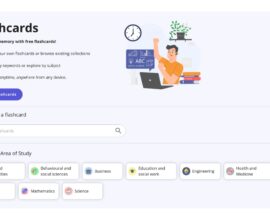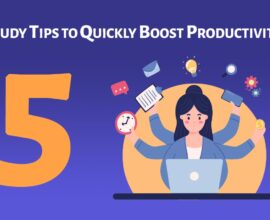What Type Of Learner Are You?
Everyone has a different learning style, and certain teaching methods that might work well for one student aren’t as well suited to the next. Students learn differently according to their individual learning style. Sometimes, struggling students simply aren’t having their learning needs met in the unique learning style that suits them.
Your learning style is really a combination of many factors including your cognitive ability, emotions, and other environmental considerations. Everybody’s built differently, and our approach to education should embrace these differences in learning styles.
Neil Fleming, and educational theorist, came up with the VARK (Visual, Auditory, Reading, Kinesthetic) framework for different learning methods. This covers only four learning styles, but we’ll be looking at an expanded list of seven learning styles. You can expand this to include seven distinct learning styles:
The Seven Different Learning Styles
- Visual
- Auditory
- Verbal
- Physical
- Logical
- Social
- Solitary
Adapting your study habits to suit your learning style can massively help your education and improve your experience at uni, and with education overall. Read on for some of our favourite study tips for all types of learners.
1. Visual
Visual learners process information best when it’s neatly and clearly presented in a graphic. Think mind maps, graphs, and charts. If you’re a visual learner, you probably understand images and symbols in visual aids more quickly than words on a page or being given instructions.
If you like the diagrams in an IKEA manual, you’re probably a visual learner.
Visual learners often find themselves in highly visual professions, and you’ll find a lot of visual learners in architecture, graphic design, and the arts. Anything where you can draw pictures and follow visual cues is great for a visual learning style.
- Try making your own mind maps
- Consider employing flash cards
- Use plenty of colour and shape in conveying the subject matter
2. Auditory
Auditory learners are phenomenal listeners. They understand things best when they hear them, and as a result often go into music or speech pathology.
Subtle changes in pitch, tone, and rhythm are more obvious to auditory learners than to other styles. As such, audio recordings of lectures and creating your own voice notes are great study strategies for an auditory learner.
- Students who are auditory learners often work best in silence
- Stay away from sonic distractions
- Avoid busy public places with bustling conversation
- Try sitting away from a window or door in the classroom can boost results for auditory learners
- You might love music, but as an auditory learner you might even find better results if you work without listening to music
3. Verbal
Verbal learners absolutely love the written word. If you’re prone to playing with words, you love reading, and you can effortlessly put words onto paper to get your point across, odds are you’re a verbal learner. Written notes will help you to retain information.
Students who are verbal learners often do well in academia, where constant reading and writing are par for the course.
- You might want to try making up mnemonic devices
- Create rhymes to study with
- Ensure that you have plenty of reading material for your subject to get best results
4. Physical
Physical or kinesthetic learners, prefer to act now and ask questions later. They learn best simply by doing things, hands on. If you thrived on field trips, and you would rather throw out the manual and put your IKEA furniture together one piece at a time, odds are you’re a physical learner.
Kinesthetic learners can be found in all walks of life, from the trades to professional musicians.
Students who are kinesthetic learners learn best by taking action and getting hands-on rather than watching demonstrations or following instructions.
- Learning games and direct, active engagement with subject matter is best for physical learners
- If you’re a kinesthetic learner, the act of making your study materials is as important to the learning process as studying itself
- We encourage you to try chewing gum as you study, which studies have shown increases alertness
- Try teaching others not only to test your understanding, but to cement the knowledge in your mind
5. Logical
Logical learners are a bit like the Vulcans from Star Trek. Their minds work best mathematically, observing things, recognising patterns and connecting ideas as easily as the verbal learner reads a book.
Understanding ideas is easiest when these ideas can be grouped into discrete categories that connect concepts.
For this reason, you’ll find a lot of logical learners in the STEM disciplines, like accountants, computer science, and engineers.
The Ancient Greek philosophers and their students took a lot of pride in their logical abilities, but if you’re a logical learner, you probably already connected enough dots to work that out for yourself.
- Logical learners should always try to break concepts down into smaller, connected ideas
- Identify the patterns and relationships between concepts
- The more you understand, as a logical learner, the less you have to remember
6. Social
Social learners, also known as interpersonal learners, are blessed with top-tier communication skills. You’ll often find them in collaborative professional environments like teaching or retail, and they’re often quite empathetic. Social learners tend to thrive in group discussions.
For a student who identifies as a social learner, a collaborative environment is key. There are benefits to collaborative learning for everyone, but social learners will thrive in this environment. Group projects will be a breeze.
- Involve your classmates in your learning
- Don’t be afraid to ask for help from your fellow students or from teachers and tutors
- Make study materials together, form a study group, and be inclusive as you learn the material together
7. Solitary
The solitary learner works best in solitude. Imagine an author, or brilliant scientist, absorbed in their work. That’s a solitary learner, who processes information best when isolated from distractions in the learning environment.
If you’re a solitary learner, odds are you already have a nice, quiet study space away from distractions. If not, make one! Students who are independent learners do well when setting goals and making plans, because they’re great at keeping themselves accountable.
- Set goals and make plans
- Make sure you have a quiet place to go during your study breaks
- Just because you’re capable of laser-like solitary focus does not mean you shouldn’t be taking frequent, effective breaks. They’re great for helping you retain information
- Be sure to take your breaks somewhere quiet where you can chill out rather than going to the common room or the bar and interrupting your focus
Blending Learning Styles
Most of us, if not all of us, will benefit from blending different learning styles, and accommodating different types of learners.
Although, generally, we tend to favour one style over another, Most students learn best using a combination of two or more different learning styles. You might be among the aural learners who do best in solitude, or a kinesthetic learner who thrives in a team environment.
You could even be a combination of auditory and visual, where reading your notes while you listen to a recording of the lecture is the best way forward. The trick here is to find the methods across different learning styles that work best for you.
- You might belong to more than one category of learning style
- Try incorporating different strategies from multiple styles to see what works
- Try both social and independent learning
Conclusion
There you have it! Our favourite tips for each of the seven learning styles. Remember that you might benefit from a combination of these tips and tricks, according to your preferred learning style. Very few people fall totally into one learning method or another. It’s more likely that you encompass a variety of different ways of learning, and in some areas you might lean more towards one approach than another.
You might love flash cards, but also need to get some help with your homework as a social learner. Perhaps you’ll incorporate an element of physical learning, where test prep means practice exams and a hands-on approach, in your broader study plans as a verbal learner who loves textbooks.
In the end, how you want to structure your study according to the most fitting learning style is totally up to you, and none of these categories are mutually exclusive. Embrace your own unique learning methods and enjoy your improved study!






